What led to dilly-dallying in ICC arrest warrants against Netanyahu, Gallant
By Maryam Qarehgozlou
The International Criminal Court (ICC) on Thursday issued arrest warrants against Israeli regime premier Benjamin Netanyahu and former military affairs minister Yoav Gallant over the genocidal war against Palestinians in Gaza.
The important ruling, however, came after the dilly-dallying of more than six months by the Hague-based international tribunal, which human rights activists say stems from the institution’s inherent “racist bias” and “external meddling” by the United States and the Zionist regime.
The external interference in the functioning of the ICC, they assert, has “systematically obstructed” the pursuit of justice, further undermining the institution's credibility and effectiveness.
It was on May 20 when ICC’s top prosecutor Karim Khan announced his intention to seek war crimes charges against Netanyahu and then-military affairs minister Gallant over their involvement in genocidal actions in the Gaza Strip for the past year.
It marked the first time an ICC prosecutor had sought arrest warrants against the leader of a close Western ally, in this case Netanyahu.
Israel’s genocidal war on Gaza that followed the Hamas-led Operation Al-Aqsa Flood on October 7, 2023, has killed close to 44,200 Palestinians so far, 70 percent of them women and children.
The devastating war has also pushed the blockaded territory to the brink of famine due to the occupying regime’s intentional obstruction of humanitarian aid.
In the past year, critical infrastructure essential for civilian survival has been subject to relentless Israeli bombardments, leading to the displacement of nearly all of Gaza’s 2.3 million population.
The United Nations has over the past year repeatedly expressed concern over the dire situation in Gaza, stating that “there is no safe place” left in the besieged territory and that a dignified human life is “a near impossibility.”
On Thursday, after nearly 185 days, the ICC issued arrest warrants for Netanyahu and Gallant in connection with war crimes and crimes against humanity committed in Gaza.
The judges said there were “reasonable grounds” to believe Netanyahu and Gallant “intentionally and knowingly deprived the civilian population in Gaza of objects indispensable to their survival.”
The court also said the men bore “criminal responsibility” for war crimes and crimes against humanity during the ongoing bloody onslaught on the coastal territory.
ICC chief Khan had also issued arrest warrants against Hamas military leader Mohammed Deif, as well as Hamas political bureau chief Ismail Haniyeh and his successor Yahya Sinwar.
While Haniyeh and Sinwar were also assassinated during this period, Deif is reportedly still leading the fight against the Israeli occupation on the frontlines in Gaza.
Analysts say it is crucial to recognize that the Al-Aqsa Flood Operation was a response to more than seven decades of Israeli aggression and human rights violations inflicted upon Palestinians.
This context sets it apart from the devastating and inhumane tactics employed by the Israeli regime during its prolonged military occupation of Palestine and war crimes in the Gaza Strip.
‘A racist institution’
Many have drawn parallels between the ICC's actions in the Ukraine war and the genocide in Gaza, arguing that while it acted swiftly in the case of the former, it has been hesitant to act on the latter.
In the case of Ukraine, the ICC issued an arrest warrant against Russian President Vladimir Putin in just 24 days, acting under the pressure of its Western patrons.
However, in the case of the Israeli genocidal war on Gaza, it took ICC prosecutor Khan six months to announce his intention to seek warrants for the Israeli war criminals and a further six months for ICC judges to issue the arrest warrants, raising serious questions about the court's impartiality.
"The Zionism Observer,” an international collective of software developers, cartographers, translators, and archivists, shared a video on their X account recently, capturing footage from the ICC website.
The collective slammed the Hague-based tribunal for only prosecuting black individuals and Russians while overlooking Western leaders and Zionist regime officials.
“Is the ICC a racist institution that refuses to prosecute leaders from ‘the West’? Let’s scroll through every single ICC defendant on their website to find out. Huh, no seemingly no white people charged by the ICC,” it said in a thread of posts on its X account two days before the arrest warrants were issued.
“Please note, there are (at least) 3 white defendants, but they are of course Russians, not ‘Western,’ which is part of the pattern we are documenting,” it added.
Khan himself disclosed in an interview with CNN in May that some elected leaders had been “very blunt” with him as he prepared to issue arrest warrants for the Israeli regime leaders.
“‘This court is built for Africa and thugs like Putin,’ is what a senior leader told me,” he said then.
What led Khan to announce arrest warrants?
When Khan was appointed as ICC chief prosecutor in June 2021, the inquiry into Palestine was not initially prioritized by the British prosecutor’s team.
Israeli regime officials were quoted as expressing “lots of respect” for Khan and viewing his appointment to the court as a “reason for optimism.”
Independent journalist and author Mustafa Fetouri stated in an interview with the Press TV website that the ICC could not ignore the ongoing situation in Palestine, particularly in Gaza.
He attributed this, in part, to public opinion, “as millions of people have been and still are actively protesting against Israeli aggression and genocide in Gaza.”
According to Fetouri, the court had to respond to the widespread condemnation of Israel’s actions.
He noted that all United Nations agencies have unequivocally condemned the Israeli genocide in Gaza, which he said has contributed to increased pressure on the ICC to investigate these crimes.
In February 2024, Khan issued a forceful statement on X, warning Israel against launching an assault on Rafah—Gaza’s southernmost city where over 1.5 million displaced Palestinians had sought refuge.
“I am deeply concerned by the reported bombardment and potential ground incursion by Israeli forces in Rafah,” he wrote. “Those who do not comply with the law should not complain later when my office takes action.”
According to a joint investigation by The Guardian, +972 Magazine and Local Call, published in late May, the Israeli regime was aware of Khan’s intentions to request arrest warrants against Netanyahu and other Israeli regime officials as early as April.
Israeli spy agencies intercepted emails, attachments, text messages, and calls from Khan and other officials in his office, providing Israel with information on the ICC’s plans, the investigation revealed.
An ICC spokesperson said at the time that Khan’s office had been subjected to “several forms of threats and communications that could be viewed as attempts to unduly influence its activities.”
Despite facing pressure, Khan said Israel’s prime minister and war minister were responsible for war crimes, including extermination, starvation, denial of humanitarian relief supplies, and deliberate targeting of civilians in Gaza.
“I specifically underlined that starvation as a method of war and the denial of humanitarian relief constitute Rome statute offenses. I could not have been clearer,” he said at the time.
“As I also repeatedly underlined in my public statements, those who do not comply with the law should not complain later when my office takes action. That day has come.”
Threats, intimidation, and a smear campaign
In announcing the charges, Khan hinted that outside forces were waging a campaign to derail his investigation.
“I insist that all attempts to impede, intimidate, or improperly influence the officials of this Court must cease immediately. My office will not hesitate to act pursuant to article 70 of the Rome Statute if such conduct continues,” he said.
Article 70 of the Rome Statute of the International Criminal Court addresses offenses against the administration of justice, which are punishable by the Court. These offenses can be categorized into three groups: perjury or false testimony, obstruction of the Court’s activities, and solicitation of bribes.
However, allegations of sexual misconduct against Khan surfaced last month in what some perceived was a “smear campaign” aimed at discrediting him and derailing the case against regime leaders.
Khan rejected the misconduct and said he and the court have been the target of “a wide range of recent attacks and threats” in recent months.
An external investigation was launched by the ICC’s oversight body to examine the accusations against Khan, while he remained in his position as Chief Prosecutor during the inquiry.
Fetouri touched on the complexity of pursuing legal action against Israeli officials, saying, “When it comes to Israeli terrorists, it’s a quite difficult business.”
Moreover, around the same time in late October, Romanian judge Iulia Motoc, presiding over the three-member ICC panel considering the request to issue arrest warrants against Netanyahu and Gallant, was taken off the case on unspecified medical grounds.
Motoc was replaced by Beti Hohler, a Slovenian who was elected as a judge at the court last year after earlier serving as a trial lawyer in the court’s prosecution office.
Motoc’s replacement and the allegation leveled against Khan were designed to further delay the issuance of arrest warrants, those familiar with the matter were quoted as saying at the time.
Former UN official and human rights lawyer Craig Mokhiber also raised concerns over the sudden change amid increasing pressure from Israel and Western nations.
Mokhiber noted that Judge Hohler had previously suggested trying Israeli officials in domestic courts, instead of ICC.
How did the US react to the arrest warrants?
Neither the United States nor Israel are signatories to the Rome Statue, placing them outside of its jurisdiction. But they both have supported previous ICC prosecutions, notably the court’s issuance of an arrest warrant for Putin over alleged war crimes in Ukraine.
After the warrants on Thursday, in an overwhelmingly bipartisan response, US politicians from both major parties, with a few exceptions, expressed outrage and indignation at the Court’s decision.
Many of them went so far as to question the legitimacy of the ICC itself, condemning the ruling as an affront to Israel and the longstanding relationship between the United States and its ally.
Senator Lindsey Graham, a staunch ally of President-elect Donald Trump, called upon the US government to impose sanctions against the ICC.
Graham also threatened American allies with sanctions if they enforced ICC arrest warrants.
“To any ally, Canada, Britain, Germany, France, if you try to help the ICC, we’re going to sanction you,” Graham told Fox News in an interview.
Congressman Mike Waltz, who has been selected as Trump’s National Security Adviser, strongly criticized ICC and warned of a “strong response.”
“The ICC has no credibility and these allegations have been refuted by the US government,” Waltz wrote in a social media post.
“Israel has lawfully defended its people [and] borders from genocidal terrorists. You can expect a strong response to the antisemitic bias of the ICC [and] UN come January.”
In May, when Khan first announced that he sought the arrest warrants, Joe Biden’s administration called the request “outrageous,” and said it was blindsided by the move.
US Secretary of State Antony Blinken told a congressional hearing that he was “committed” to taking action against the “profoundly wrong-headed decision.”
Republicans have also been pushing for sanctions on ICC officials following the Court’s decision.
The incoming leader of the US Senate, South Dakota Republican Sen. John Thune, on Sunday, threatened the ICC with potential sanctions if it officially seeks arrest warrants for Netanyahu.
“If the ICC and its prosecutor do not reverse their outrageous and unlawful actions to pursue arrest warrants against Israeli officials, the Senate should immediately pass sanctions legislation, as the House has already done on a bipartisan basis,” Thune wrote on X.
“If Majority Leader Schumer does not act, the Senate Republican majority will stand with our key ally Israel and make this – and other supportive legislation – a top priority in the next Congress.”
‘You have been warned’
On April 24, a group of 12 Republican US senators, with advance knowledge of the prosecutor’s intentions, sent a letter to Karim Khan threatening repercussions if he moved forward with arrest warrants for Israeli officials.
The signatories declared they would take any warrant issued as “not only a threat to Israel’s sovereignty but to the sovereignty of the United States.”
“Target Israel and we will target you,” they warned and noted that any further action would “end all American support for the ICC,” “sanction your employees and associates” and “bar [Khan] and [his] families from the United States.”
The letter ended: “You have been warned.”
Threats against the ICC are not new, however. In 2020, during the presidency of Trump, Khan’s predecessor, Fatou Bensouda, and one of her top officials faced economic sanctions from the US.
At a press conference in June of that year, senior Trump administration figures signaled their intention to impose sanctions on ICC officials, announcing they had received unspecified information about “financial corruption and malfeasance at the highest levels of the office of the prosecutor.”
The sanctions, however, were a response to the ICC’s investigation into war crimes committed by US forces during their invasion of Afghanistan in 2001.
“Of course, the ICC has been and continues to be under greater pressure, not only from the terrorist Israeli regime but also from the US, so everything the Israelis tried to do is actually supported and abetted by the United States,” Fetouri told Press TV website.
“The US is not a member of the court itself, but has always supported the indictments of other people from Africa, for example, the Libyan leader Muammar Gaddafi, however, when it comes to Israel, the United States supports Israel in its efforts to distract it or force Mr. Khan to resign,” he added.
The Hague Invasion Act
The US in 2002, just a few weeks after the creation of the ICC, approved the American Service members’ Protection Act which later came to be known as The Hague Invasion Act.
The act authorized the US president to use “all means necessary and appropriate” to free members of the US military and “covered allied persons,” who are detained or imprisoned “by, on behalf of, or at the request” of the ICC.
“Covered persons” include all US citizens acting for the US government and any individuals acting for any allied government, like NATO member states and “major non-NATO allies” like Australia, Egypt, Israel, Japan, Jordan, Argentina, the Republic of Korea, and New Zealand.
All military personnel and government officials from these countries are eligible for US help against the ICC, upon request. They lose such assistance once their own countries join the Court.
According to Fetouri, the law implies that the US president has sweeping powers to fight the court and it authorizes the use of military force to liberate any American or citizen of a US-allied country being held by the court.
“So if any Israeli person, a former soldier, for example, has been captured on behalf of the ICC, let’s say in Belgium, or let’s say in New Zealand, the US president, in that case, have the legal authority from Congress to send in troops to Belgium or to New Zealand to free that person. It’s just crazy.”
“Will the US actually do it or not? I don’t know. But with [the US president-elect] Trump coming into power, and as crazy as he is, he might just do it,” he warned.
Israel’s decade-old war against ICC
The investigation by the Guardian and the Israeli magazines +972 and Local Call also revealed how Israel has run an almost decade-long secret “war” against the Court.
In 2015, it was confirmed that Palestine would join the ICC after it was recognized as a state by the UN General Assembly, a move that infuriated the Zionist entity.
On January 16, 2015, within weeks of Palestine's joining, Bensouda opened a preliminary examination into what in the legalese of the Court was called “the situation in Palestine.”
Ever since, the apartheid Israeli regime has been employing its spy agencies to conduct surveillance, hacking, and smear campaigns against senior ICC officials.
These efforts were aimed at derailing the ICC’s investigations into war crimes committed by Israeli forces in occupied Palestinian territories.
Based on the investigations, both Khan and his predecessor Bensouda’s communications, including their phone calls, messages, emails, and documents were captured by Israeli spies.
The investigation also revealed that Netanyahu’s close ally Yossi Cohen, who at the time was director of Israel’s spy agency, the Mossad, had personally run a covert operation against Bensouda.
“Cohen persisted in contacting the prosecutor, turning up unannounced and subjecting her to unwanted calls. While initially amicable, the sources said, Cohen’s behavior became increasingly threatening and intimidating,” said the investigation.
“Accounts of his secret meetings with Bensouda paint a picture in which he sought to “build a relationship” with the prosecutor as he attempted to dissuade her from pursuing an investigation that, if it went ahead, could embroil senior Israeli officials,” it added.
As a citizen of The Gambia, Bensouda lacked the political protection that her ICC colleagues from Western countries had.
This disparity made her more susceptible to external pressure and left her feeling “vulnerable and isolated,” the investigation quoted a former ICC source.
Does ICC have the necessary mechanisms to prosecute meddlers?
According to Fetouri, if the ICC feels unable to handle cases like this due to external pressures, particularly from the United States and others, it has the option to refer the matter to the United Nations Security Council.
“Of course, not much will happen, because the US is already having a veto power on the council. But regardless of what will happen, it will be a very embarrassing diplomatic step, if we get to that,” he said.
“Even for Trump, who never feels any embarrassment at all and is ready to commit any unthinkable act without actually feeling a bit of shame, it will be very embarrassing to go to the UN Security Council, whereby the ICC, Mr. Khan, will be complaining about what the US and Israel have been doing,” he added.
Fetouri believes that ICC is in a “quite difficult position”, yet it has been successful so far in “exposing the lie that Israel is a democratic state and upholds human rights.”
“Actually, it is the most terrorist entity in the world, and it does not respect any idea that has to do with human rights at all,” he concluded.
Nevertheless, some are frustrated with the ICC and the ineffectiveness of international organizations in addressing issues related to Palestine and the Israeli war waged against them.
“ICC was established to prosecute third world rulers who reneged from obligations imposed on them by Western hegemony,” wrote one user on X.
“While they shuffle paper, Palestinians still bombed, killed, injured, starved, tortured, imprisoned, skin and organs stolen, and land destroyed! Either issue those damn arrest warrants or don’t. But DO NOT DISTRACT from the Zionist genocide! It continues while the world watches!” wrote Farah Adams, a Scottish solicitor on X.
“I do not downplay this unprecedented ICC’s measure, but as a Palestinian, I am clearly and loudly declaring it: We lost faith in international institutions. We only trust nations and we believe that they have the power to help,” Motasem A Dalloul, Gaza-based journalist wrote in a post on X.
‘Textbook definition of terrorism’: Tehran denounces Pelosi’s call on US to exact ‘pain’ on Iranians
VIDEO | 39th AU summit opens in Addis Ababa with focus on water security, peace, and development
VIDEO | Iran: The stronghold Washington lost
Anti-Iran ‘Munich circus’ shows Europe has lost geopolitical weight: Araghchi
Swiss to act as venue of next round of Iran-US talks: Report
Report: Over 50,000 soldiers fighting in Israeli military hold foreign citizenship
Danish PM warns US attack on Greenland would spell end of NATO
Power running out at key Gaza hospital, ICU patients at risk: Report


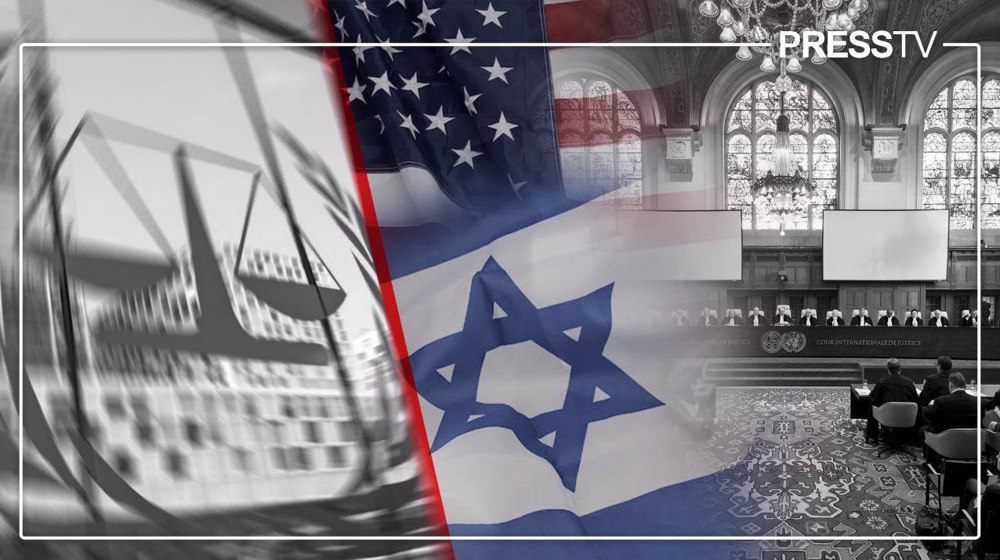
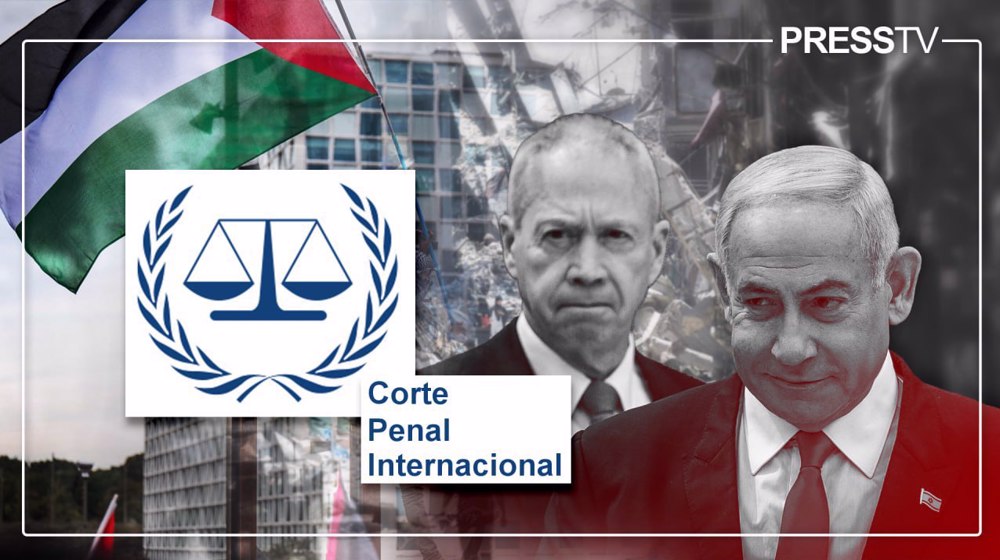
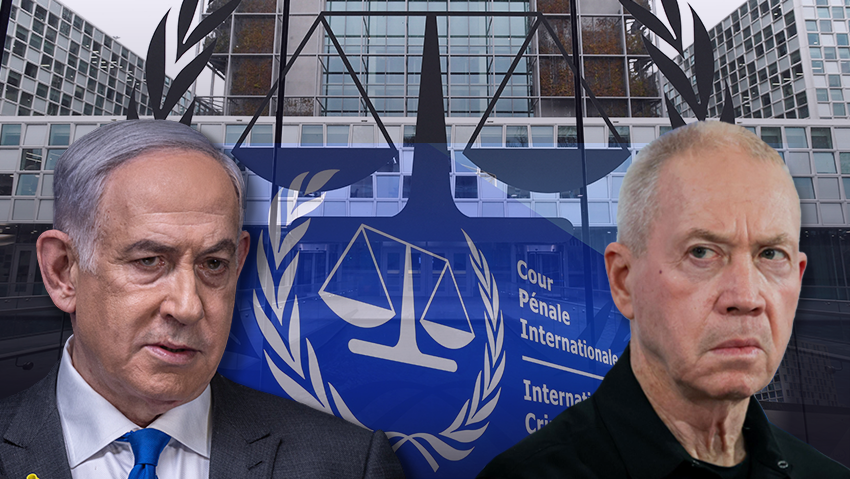
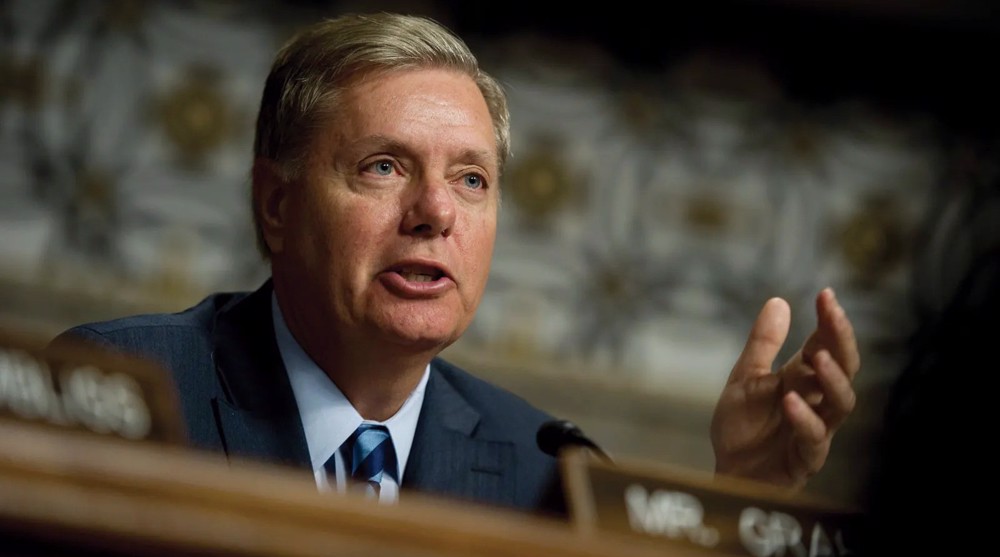
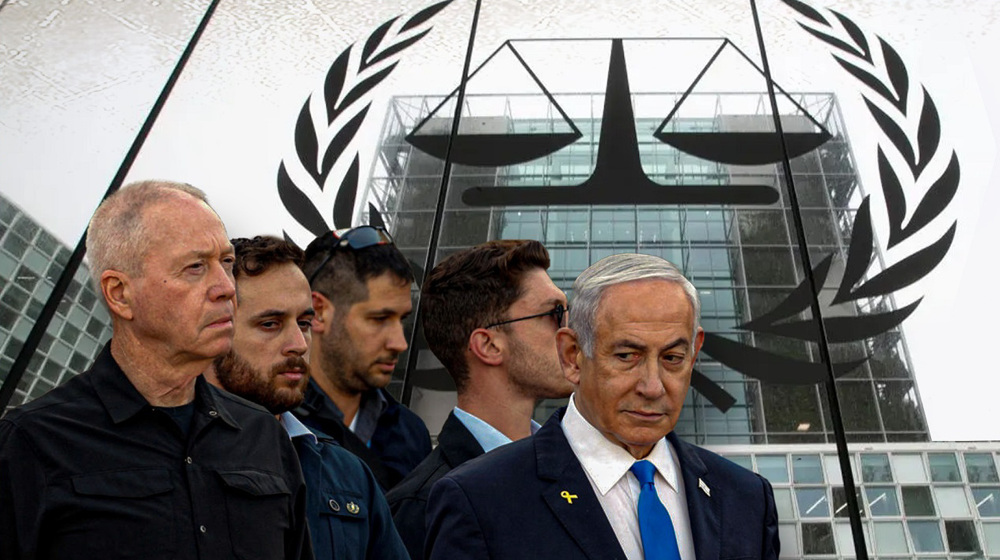
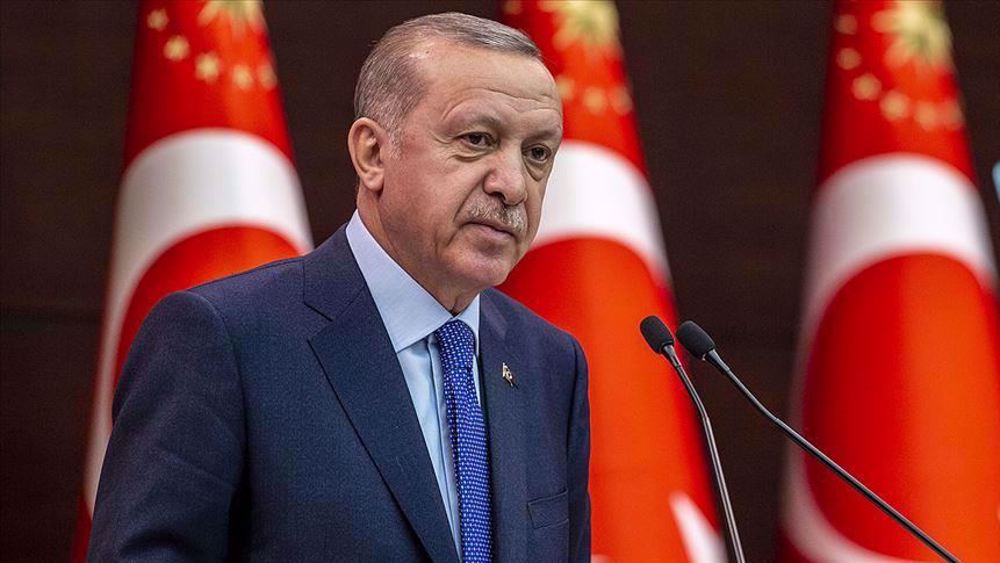
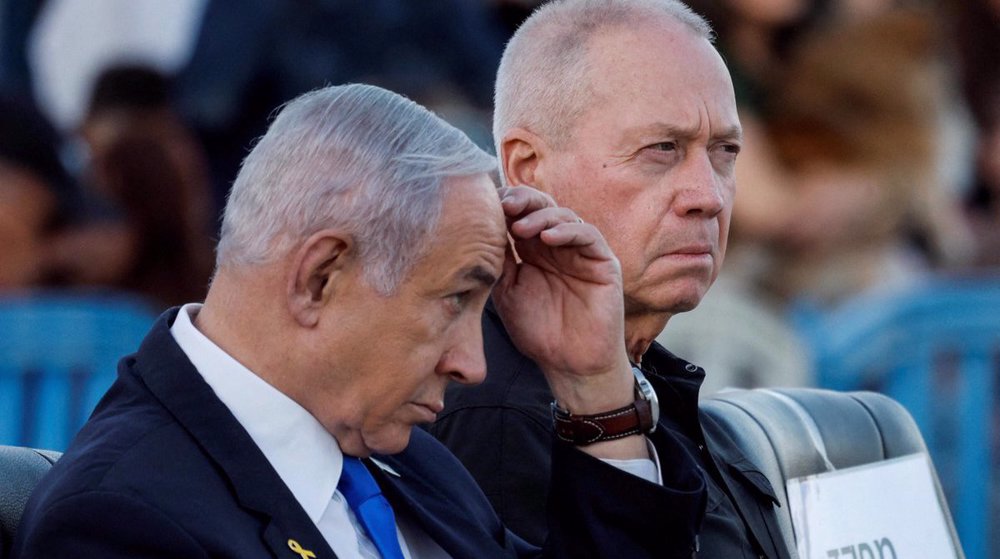
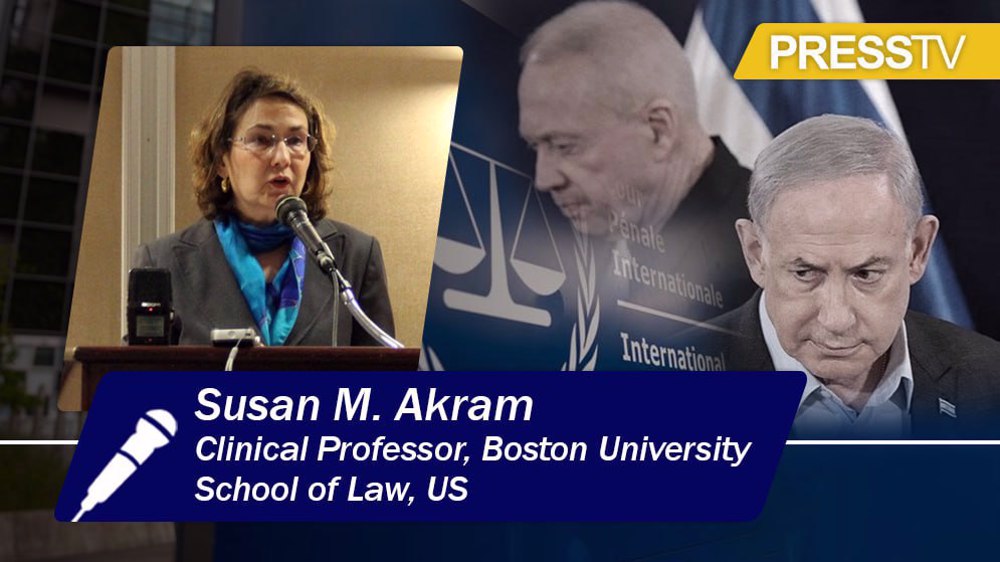
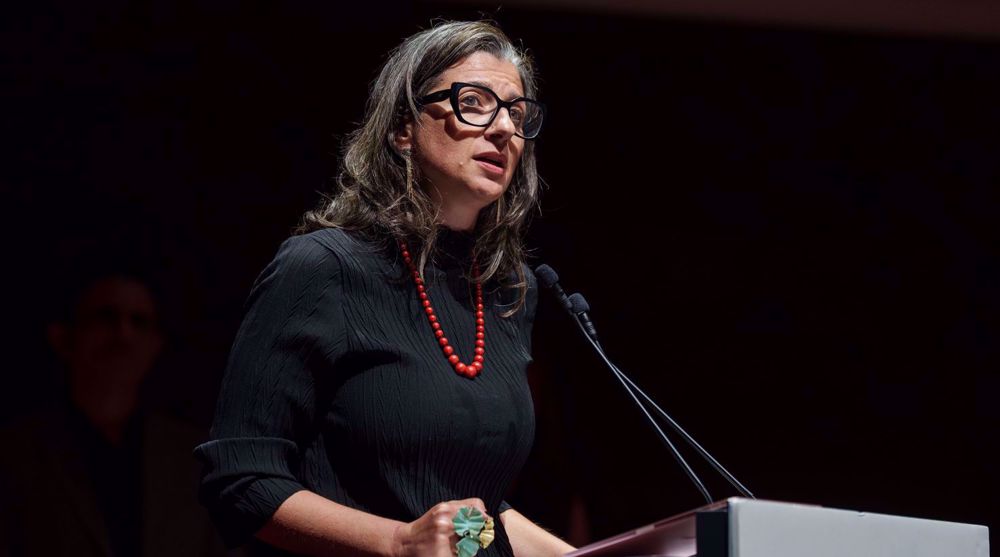
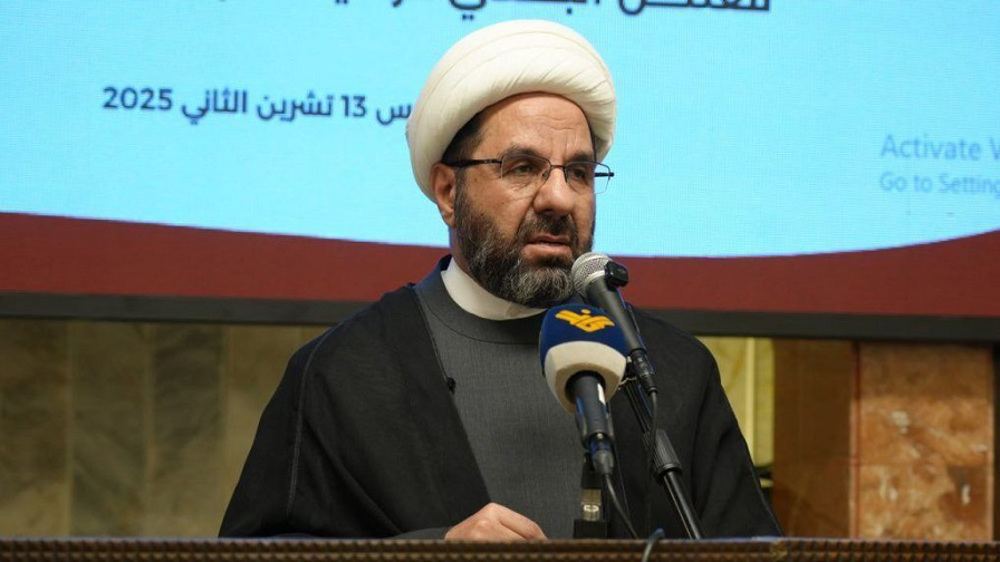
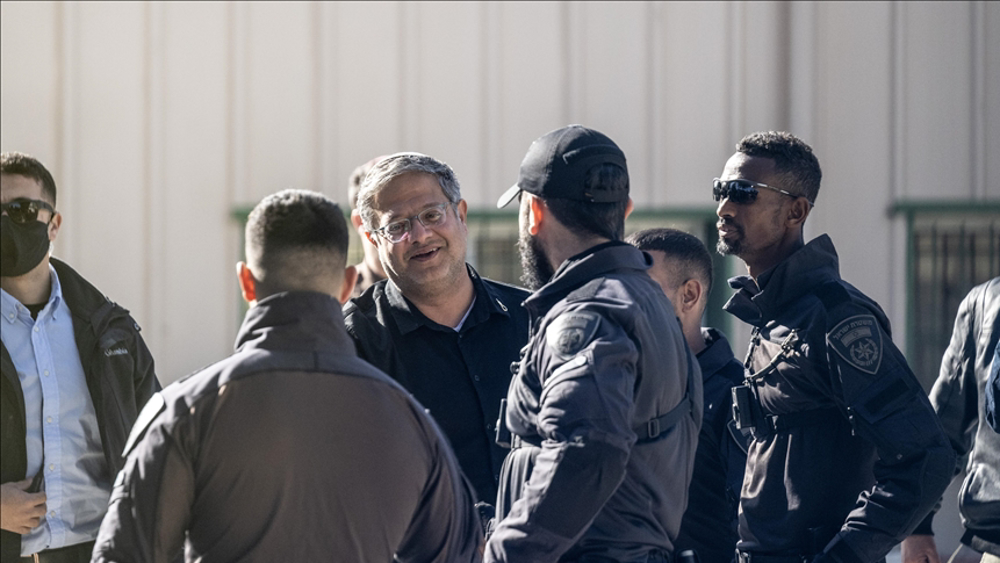



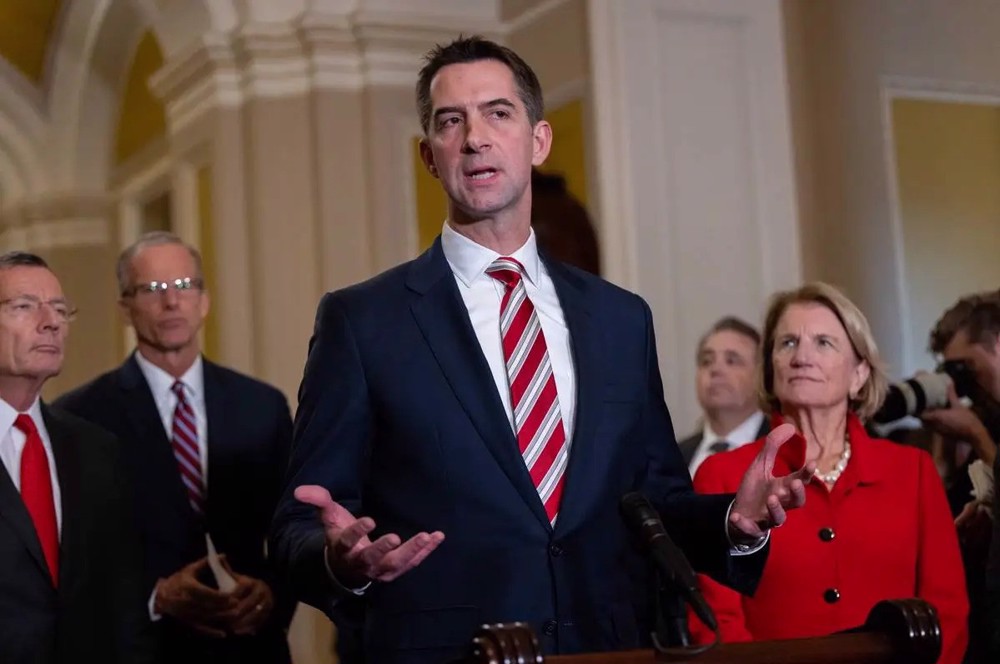

 This makes it easy to access the Press TV website
This makes it easy to access the Press TV website